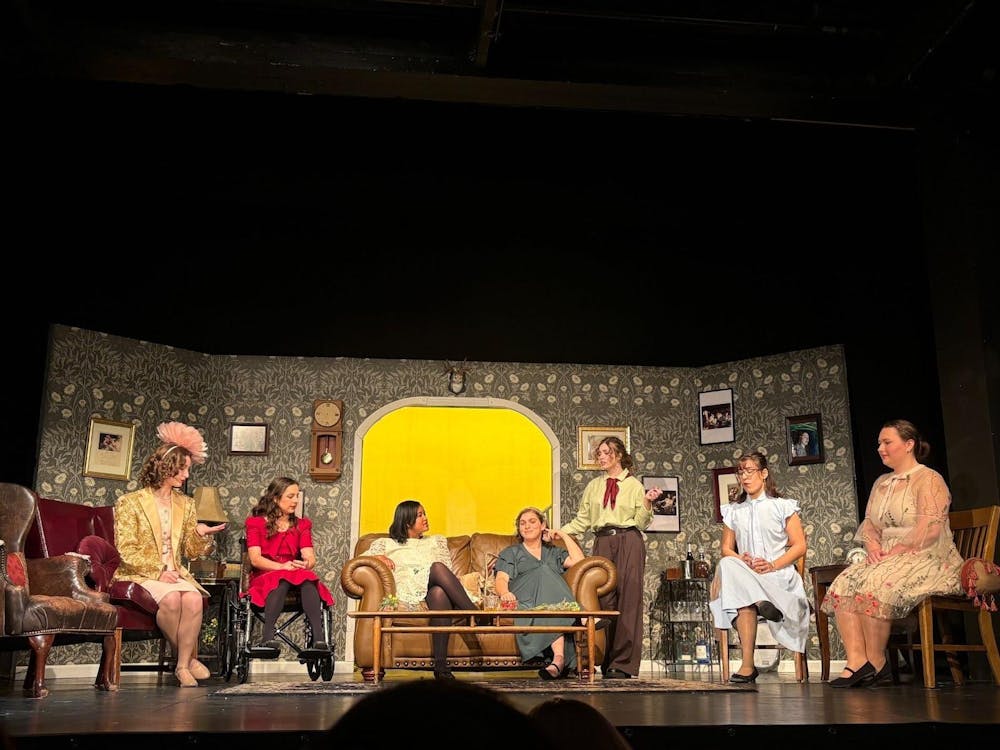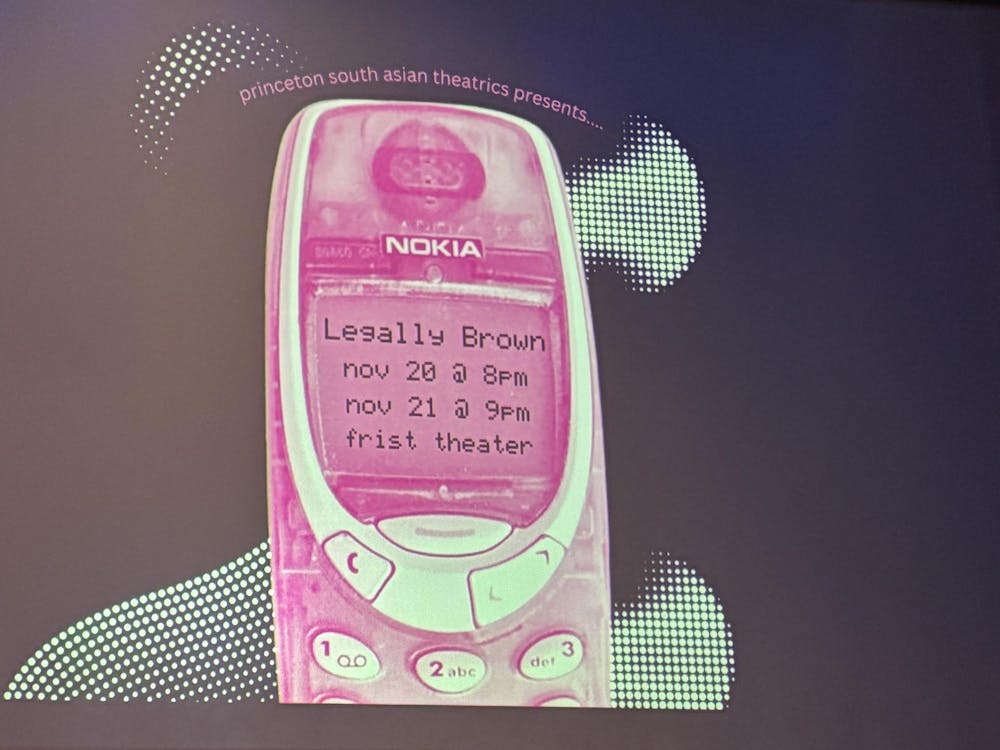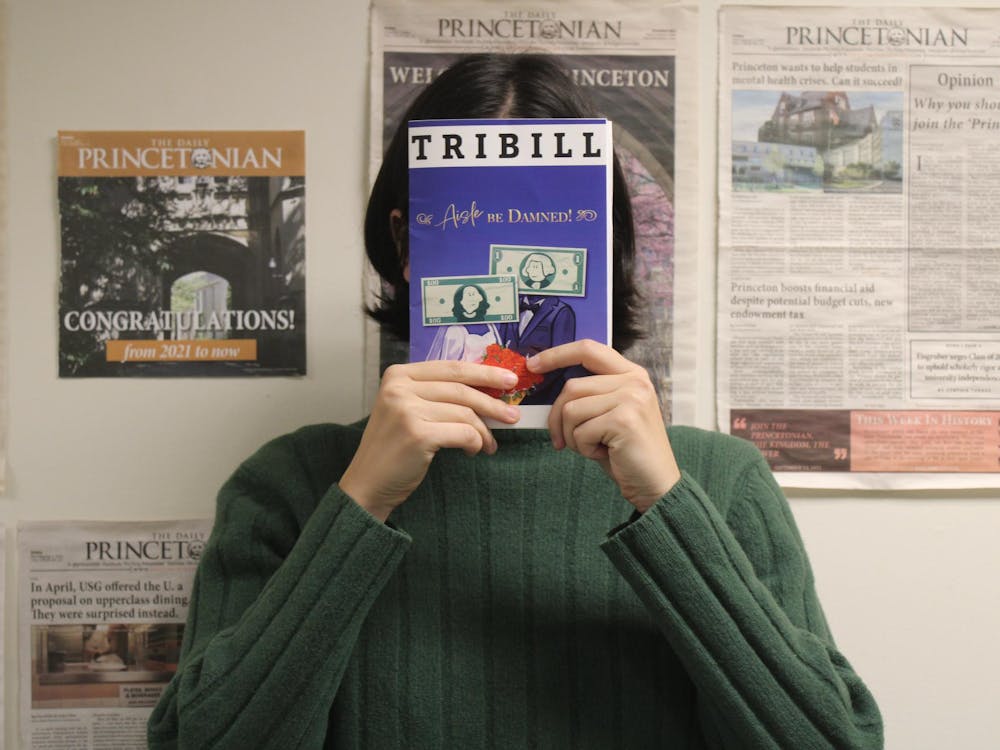By CAROLINE HERTZ Contributor
Works of fiction — dramatic or otherwise — can usually be boiled down to stories of protagonists who want something. In the case of "Circle Mirror Transformation," which opened at Theatre Intime last Thursday, the opening “want” is to get a group of people to count to 10.
Counting to 10: An action so basic and so characteristic of this simply structured production. "Circle Mirror Transformation" follows the lives of five New Englanders as they participate in a six-week “adult creative drama class.” The play unfolds slowly as Marty, the leader of the class, played stunningly by Ava Geyer ’15, guides the group through a series of creative and sometimes embarrassing dramatic exercises. In addition to Marty, a warm, soft-spoken, earthy woman who seeks to use the emotional class exercises to heal her damaged marriage, there are four other participants in the class. There is Schultz (John Somers Fairchild ’15), a recently divorced, socially inept 48-year-old carpenter who often makes the other students uncomfortable with his unparalleled ability to say the wrong thing, all the time remaining delightfully oblivious of his own strangeness. There is also Theresa (Caroline Slutsky ’14), an attractive former actress who is grappling with the residual effects of a past abusive relationship, and Lauren (Anna Aronson ’16), a terrifically sulky 16-year-old trapped between bitter parents, who is eternally irritated by the endlessly silly exercises. And finally, there is James (Kanoa Mulling ’15), Marty’s dismissive and emotionally unavailable husband who spends most of his time leaning against the wall, cross-armed and disdainful.
You might think this all sounds horribly depressing — I assure you that it is not. In this play, sadness is approached matter-of-factly — it’s just life. There’s a great deal of delicious, authentic humor to be found in nearly every scene.
Under the sensitive and wonderfully light direction of Annika Bennett ’15, this production thrives on silence and understatement. It’s a series of short vignettes divided by blackouts. The awkward silences, the bumbling conversations, the palpable discomfort that often reigns in the ballet-studio-turned-theatrical-space — it can be painful at times, but the effect is deliberate and marvelous. For out of the stilted environment created by the absurd “theater games” — out of the sheer artificiality of it all — is born a breathtaking atmosphere of honesty. Theater, after all, is only pretending. And yet this production gently suggests that sometimes that’s the best way to get to the truth. So what are the truths revealed in this show? Nothing too complex: When you speak, you give away more than you think you do. When you don’t speak, you give away more than you think you do. Sometimes you form connections without knowing it. It’s okay to trust those connections.
This production behaves like a magnifying glass — the dialogue is so sparse that tiny subtleties of character and situation are thrown into remarkable clarity. You’ll be fascinated by how much you learn from the back of a person’s neck, the position of his spine, his elbows, his hands or the way he holds himself when he sits. The actors live in their characters beautifully and resist the temptation to punctuate the lovely, long, genuine silences. They tell their stories in microscopic facial tics, small breaths and tiny fidgeting movements. Shocking moments of bare-faced truth are quietly dropped amid the mundane, the dull and the ridiculous.
Be warned — although an adorably off-kilter romance between Theresa and Schultz pulls us through the first three weeks, this production can tend toward the draggy, especially in week five. Sometimes the numerous blackouts can be frustrating, leaving you yearning for some continuity. But be patient. The story is worth these slight annoyances, and there are quite a few memorable moments and performances. Lauren, who disappears for much of the first three weeks, merely a curly-haired figure hugging her knees to her chest at the edge of the room, has a captivating moment onstage alone in week three in which she sings to herself and stretches her toes. When she is alone, we see the emergence of a girl very different from the petulant Lauren who hovers crossly by the studio wall. Somers delivers a particularly impressive performance as Schultz — he roams the stage with his hands in his pockets, his features rigid and his voice a tad too loud for the other characters’ comfort. He is refreshingly and endlessly inappropriate, and his social barometer is fabulously faulty. When Theresa timidly invites Schultz out for coffee in week two, Schultz babbles incoherently for a split second before finally stammering, “I mean yes. Didn’t I say yes? I meant to say yes. Oh God. YES.”

Go see this production to acknowledge the ludicrous in everyday behavior. Go to be amazed by the eloquence of silence. Watch these strangers learn to connect with each other. This is a rare kind of theater — not an insincere moment to be had, not a whiff of showbiz. Agonizingly realistic and exceedingly charming.
4 out of 5 paws.
Pros: Excellent acting and sensitive direction; great story. Cons: Blackouts become cumbersome; tends to drag.








